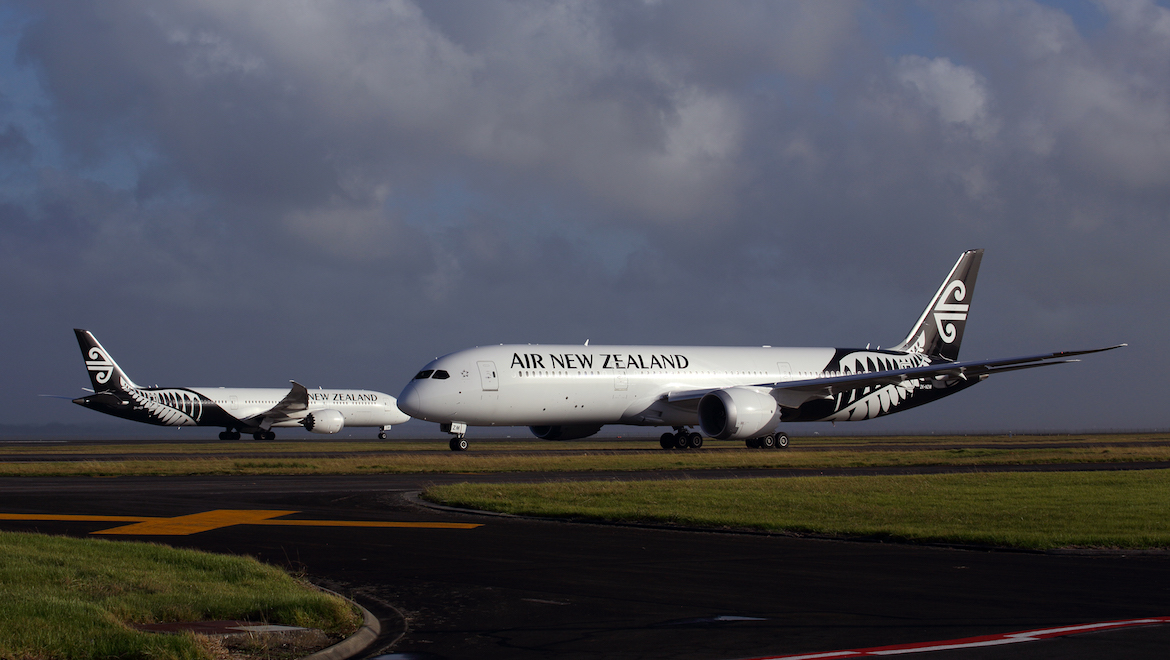
Air New Zealand has reported a 31 per cent decline in net profit for 2018/19 amid what the company described as a lower growth environment.
The airline said net profit after tax for the 12 months to June 30 2019 was NZ$270 million (A$368 million), down 31 per cent from the prior corresponding period.
Meanwhile, pre-tax earnings fell to NZ$374 million (A$353.12 million), from the prior year’s NZ$540 million (A$509 million) and within guidance of between NZ$350 million and NZ$400 million forecast it made in January.
The airline told the Australian and New Zealand stock exchanges on Wednesday – the company is listed on both sides of the Tasman – that the result was driven by operating revenue growth of 5.3 per cent to NZ$5.78 billion, from $5.49 billion in the prior year.
However, this was offset by a NZ$191 million increase of the price of fuel. This saw the carrier’s total fuel bill rising from NZ$987 million last year to $1.27 billion in 2018/19.
Slower passenger growth and a temporary increase in operating coasts as the airline sought to improve network resiliency for its customers in the wake of global Rolls-Royce engine issues for the Boeing 787 also took its toll.
Operating cash flow of NZ$986 million was down 4.36 per cent from last year’s NZ$1.03 billion.
The airline said its cargo business grew revenue marginally, from NZ$387 million to NZ$390 million year-on-year. Excluding foreign exchange calculations, however, cargo revenues fell 1.8 per cent, with volume 1.3 per cent lower in 2018/19.
Air New Zealand chief financial officer Jeff McDowall said solid cargo growth in the first half was offset by challenges in the global cargo market in the second half.
He said load factors declined across most sectors with geopolitical uncertainty driving aggressive competition, pricing and plays for market share, while yield declines were driven by intense competition, especially on the Tasman, though yields improved in Asia due to a higher value product mix.
Air New Zealand chief executive Christopher Luxon said the airline’s long-haul operations grew capacity in 2018/19 by 7-8 per cent amid additional frequencies to Taipei and Singapore, and the launch of Seoul flights. However this was partially offset my minor reductions in Japan. There was marginal growth in the Americas and Europe.
Looking ahead, Air New Zealand said that based on present market conditions and assuming an average jet fuel price of US$75 a barrel, it was targeting pre-tax earnings in a range of NZ$350 million to NZ$450 million in 2020, excluding the impact of a new accounting standard for leases.
Outgoing Air New Zealand chairman Tony Carter said in a statement: “While we are disappointed we did not meet the expectations we first set for ourselves at the start of the financial year, the fact is we are operating in a different demand environment than we were 12 months ago.”
Carter said immediate steps taken after the airline’s profit downgrade in January were still ongoing. These include reviewing the network, fleet and cost base.
Luxon, who was due to step down in September, said in a video released by the airline that the key issues presently facing the airline were increased fuel prices, higher operational costs associated with the Boeing 787 Rolls Royce engine issues, along with a significant softening in forward bookings.
Luxon said that since announcing the profit downgrade in January the airline had reset domestic fares and prices to stimulate travel within New Zealand; it had done a comprehensive network review to ensure the fleet was pointing in the right direction in a lower growth market; it had deferred NZ$750 million of aircraft orders so the timing would synchronise with a lower growth market and the cost base was under review.
Further, he said as the airline was in a fundamentally strong position and would target further growth that taps into new pools of demand.
The company declared a final dividend of NZ11.0 cents per share, bringing the total ordinary dividends declared for 2018/19 to 22 cents, in line with last year.
















